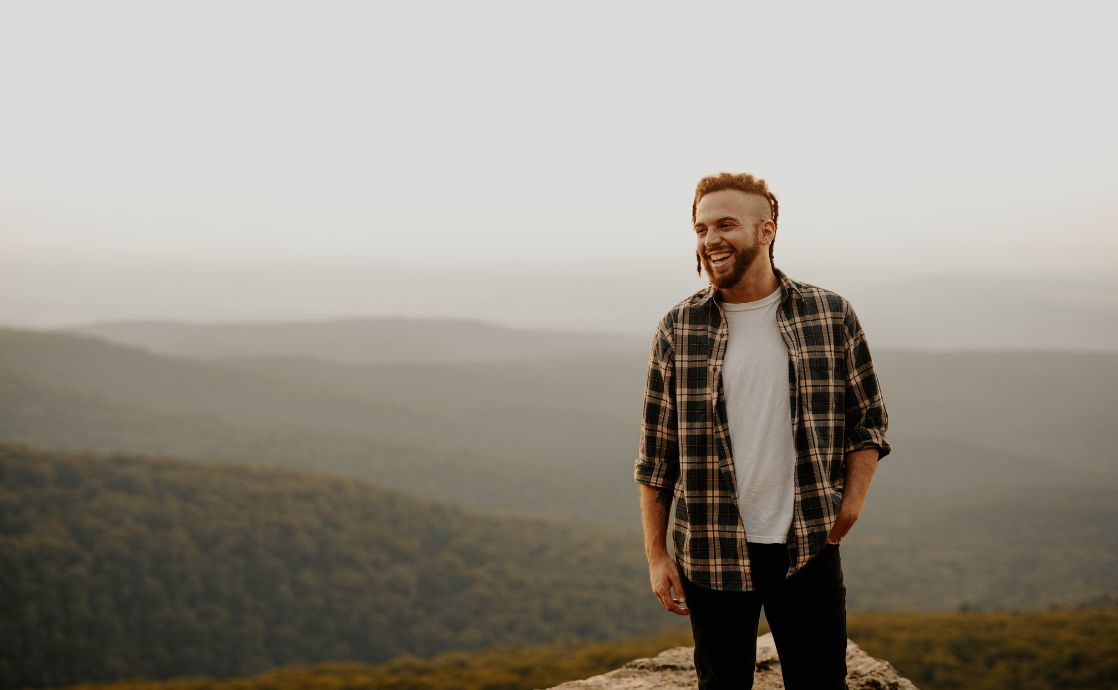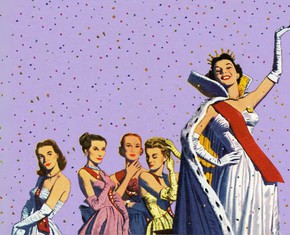The views expressed in our content reflect individual perspectives and do not represent the authoritative views of the Baha'i Faith.
I had an alcoholic father, so you’d think I might’ve learned some lessons from that experience – but by the time my mid-teenaged years had arrived, I was already well on my way down that road myself.
Alcohol ruined my father’s life. He joined the Marines at 18, then fought courageously during the Pacific campaigns of World War II, where he was grievously wounded, field-commissioned after brutal combat on Tarawa and Iwo Jima, and deeply traumatized. When the war was over, his occasional social drinking gradually turned into a daily habit and then an addiction.
RELATED: A Spiritual Case for Embracing Sobriety
I think, in the absence of any therapy, he used alcohol to self-medicate, to blot out the severe trauma and moral injury he suffered in the war. Sadly, World War II veterans had no access to treatment for that trauma.
My Dad didn’t seem like an alcoholic – as a child I never saw him stagger or slur his words. “I’m no drunk,” he’d proudly say, “I only have two drinks a day.” That “two drinks” part was true – but each one of his drinks was poured into an eight-ounce tumbler of about 95 per cent bourbon with a little splash of water added. Bourbon, a type of whisky, normally contains 40-50 per cent pure alcohol. Also, he would often start his nightly drinking, before consuming the hard stuff, with a few beers, which he didn’t consider a real drink.
So my father drank, every evening, at least 8 ounces of pure alcohol. Most people could not physically do that. He was proud of the fact that he could “Hold his liquor,” as he put it. Today, physicians understand that alcohol tolerance builds over time, just like it does for any drug, and they also know that consuming so much alcohol in one sitting without visible impairment means your alcoholism has reached a very advanced stage. Maybe that’s why his severely-ulcerated stomach had to be removed at age 45.
Under his tutelage, I started drinking at age five.
It began when my father would offer me sips of his beer or bourbon, thinking he would “teach me to drink at home.” This was a ritual for him, a practice he mistakenly thought would be good for me in the long run. Instead, it gave me a taste for alcohol early, normalized it in my life, and led to heavy drinking by the time I was 14.
Luckily, by the time I was 15, I had a new friend – Bill Davis. I thought of Bill as an older guy, although he was probably in his twenties. Bill had a real job and a little house he had turned into a Baha’i center for kids like me searching for some meaning in life. Every night after work you could usually find Bill, one of the kindest people I ever met, either at a Baha’i gathering in his home or in a church basement somewhere attending an Alcoholics Anonymous meeting.
One day Bill took me aside and asked me “Hey, Dave, why don’t you come with me to one of my AA meetings?”
“Why would I want to do that?” I asked him.
“Well, because you’re obviously having some problems with your drinking, aren’t you?”
This shocked me, but admittedly, it was true. In mid adolescence, I had already suffered from a few blackouts and a couple of drunken incidents I’d rather forget. My daily drinking had gone from recreational to had-to-have-it. Reluctantly, I agreed to go to one of Bill’s meetings.
There, the only teenager in the group, I met a whole host of grizzled older alcoholics trying their best to dry out. Some of them welcomed me, but some ridiculed me – “Get out of here, kid,” one guy snarled, “come back after you been drinking in the gutter like us for 30 years.”
Those men – and they were all men – scared me. They showed me what my future looked like if I stayed on the same path. I began to study alcoholism, read about the actual medical effects of alcohol on the human brain and body, and became a regular AA member. I stopped drinking for good at 17, and a year later, on my 18th birthday, I became a Baha’i.
RELATED: The Joy of Avoiding a Life Devoted Solely to Pleasure
The Baha’i teachings, and the way my friend Bill gently explained them to me without judgment or any insistence that I follow them, had an enormous impact on my sobriety. After I stopped drinking, I could see that the Baha’i principles of avoiding any addictive substances had made my mind clearer, my actions more responsible, and my soul better able to function without impairment or harm.
During that early, formative period in my life, I relied every day on two prayers – one, the AA serenity prayer, which says “God grant me the serenity to accept the things I cannot change, courage to change the things I can, and wisdom to know the difference;” and this prayer by Abdu’l-Baha from the Baha’i writings:
O Divine Providence! Bestow Thou in all things purity and cleanliness upon the people of Baha. Grant that they be freed from all defilement, and released from all addictions. Save them from committing any repugnant act, unbind them from the chains of every evil habit, that they may live pure and free, wholesome and cleanly, worthy to serve at Thy Sacred Threshold and fit to be related to their Lord. Deliver them from intoxicating drinks and tobacco, save them, rescue them, from this opium that bringeth on madness, suffer them to enjoy the sweet savours of holiness, that they may drink deep of the mystic cup of heavenly love and know the rapture of being drawn ever closer unto the Realm of the All-Glorious.
In the forthcoming essays in this series, we’ll look at some of the current science regarding alcohol, and see if we can garner a better understanding of its effects on individuals and on society as a whole.
















Comments
Sign in or create an account
Continue with Googleor